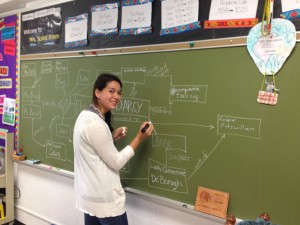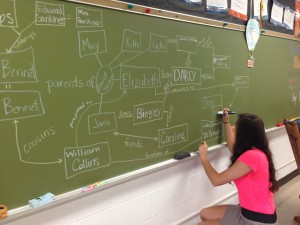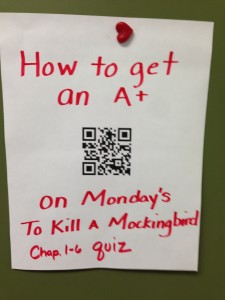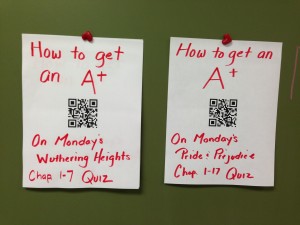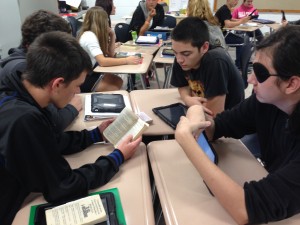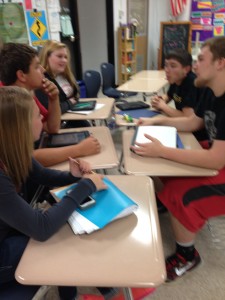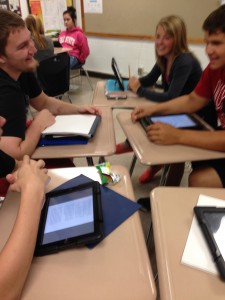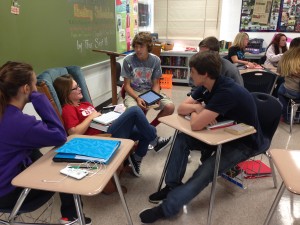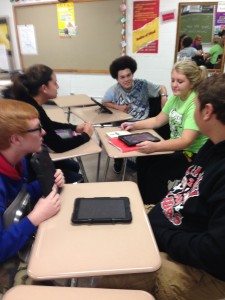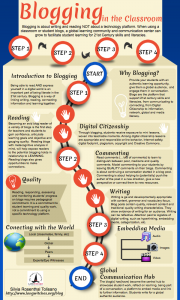Great Way to End the Week
Untangling the Characters of Pride and Prejudice
Mrs. Scales’ Story Represented Visually
QR Codes in the Classroom
Literary Circles THAT ARE WORKING
Unit 1 Culminating Activity – Annotating & Unpacking YOUR Standards
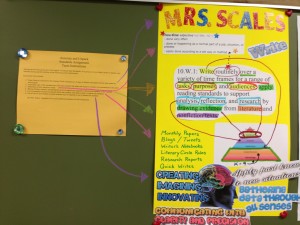 Mrs. Scales example. Student group posters will be presented on Friday. This culminating activity allows the students to dig deep and unpack to understand the English 10 reading standards as we get into our first literary circle books. Students demonstrate their understudying and mastery of Annotating Text, Blooms Taxonomy, and Habits of Mind.
Mrs. Scales example. Student group posters will be presented on Friday. This culminating activity allows the students to dig deep and unpack to understand the English 10 reading standards as we get into our first literary circle books. Students demonstrate their understudying and mastery of Annotating Text, Blooms Taxonomy, and Habits of Mind.
Welcome to English 10 Literary Circles
Welcome to English 10 Literary Circles
One of the most important steps in becoming a strong reader is understanding that learning must be student centered (Brooks & Brooks 1993). You as students must be at the heart of the learning process, and must be active participants in your own learning, not passive recipients of information that will not embed itself in the right places of your mind to become useful later on.
What are Literature Circles?
“In literature circles, small groups of students gather together to discuss a piece of literature in depth. The discussion is guided by students’ response to what they have read. You may hear talk about events and characters in the book, the author’s craft, or personal experiences related to the story.”?
What is its purpose?
“Literature circles provide a way for students to engage in critical thinking and reflection as they read, discuss, and respond to books. Collaboration is at the heart of this approach. Students reshape and add onto their understanding as they construct meaning with other readers. Finally, literature circles guide students to deeper understanding of what they read through structured discussion and extended written and artistic response.”
Literature Circles are a powerful process of bringing texts to life. It is built on the notion of the power of conversation to engage, to dig deeper, to connect, to analyze, to synthesize, to create.
Every student will participate in three to four literary circles during the English 10 course. As students you will:
Work in cooperative groups where everyone is involved to read a novel.
Fulfill your chosen Literature Circle Role(s) to contribute to the group.
Complete literature responses and participate in the “Technological Grand Conversations.”
Within each group one student will take on each of the following roles:
- Discussion Direction – writes questions to guide thoughtful group discussion and keeps group on task
- Connection Maker – writes own and group members’ connections (Text-to-Text, Text-to-Self, Text-to-World)
- Summarizer – writes a Beginning-Middle-End summary of the chunk, and revises with group input during the literary circle meeting.
- Word Wizard – searches for unusual word choice or description or defines words the group may not know
- Passage Picker – selects and rereads important passages or descriptive imagery sections to the group and discusses author’s style. Chooses a selection that the group rereads and discusses because it is interesting, informative, the climax, well written…
Each person’s role must change with each chunk of the book, which means each student should do four of the five roles during each book.
Literary Circle Schedules for 1st Grading Period
| Chunk Due Dates | Book | Pages | Meeting | Test |
| Wed. Sept. 10 | To Kill a Mockingbird | Chap. 1 p 3 – Chap. 6 p 57 | Thur. Sept. 11 | |
| Wuthering Heights | Introduction –Chap. 7 p 74 | |||
| Pride and Prejudice | Introduction – Chap. 17 p 92 | |||
| Thur. Sept. 18 | To Kill a Mockingbird | Chap. 7 p 57 – Chap. 12 p 126 | Fri. Sept 19 | |
| Wuthering Heights | Chap 8 p 74 – Chap 13 p 175 | |||
| Pride and Prejudice | Chap. 18 p. 93 – Chap. 35 p. 212 | |||
| Thur. Sept. 25 | To Kill a Mockingbird | Chap. 13 p 127 – Chap. 18 p 189 | Fri. Sept. 26 | |
| Wuthering Heights | Chap. 14 p 176 – Chap. 23 p 294 | |||
| Pride and Prejudice | Chap. 36 p 212 – Chap. 47 p 302 | |||
| Mon. Oct. 6 | To Kill a Mockingbird | Chap. 19 p 190 – End p 281 | Mon. Oct. 6 | Thur. Oct. 9 |
| Wuthering Heights | Chap. 24 p 295 – End p 406 | Thur. Oct. 9 | ||
| Pride and Prejudice | Chap. 48 p 303 – End p 405 | Thur. Oct. 9
|
